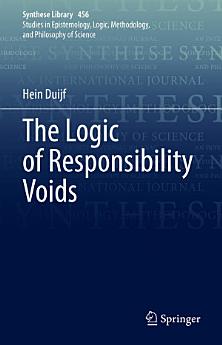The Logic of Responsibility Voids
Apie šią el. knygą
The book investigates the possibility and scope of the problem of responsibility voids. One of its characteristics is its pluralistic perspective on moral responsibility: in contrast to giving a unique and all-encompassing definition of it, the book makes progress by spelling out and modelling several conceptions of moral responsibility. One of the appealing features of the book is that a relatively small range of models is used to investigate a variety of conceptions of moral responsibility. The unifying framework can thus be used to characterize the conditions under which responsibility voids are ruled out.
Apie autorių
Dr. Hein Duijf is currently an Assistant Professor at the Ludwig-Maximilians-Universität Munich and has a PhD in Philosophy and Artificial Intelligence from Utrecht University. He was previously a postdoctoral researcher at Utrecht University and the Vrije Universiteit Amsterdam. His work can be roughly divided into two strands. In the first line of research, which started as part of the project the Social Epistemology of Argumentation, he investigates the epistemic risks and potential benefits of group deliberation by developing agent-based models and by taking inspiration from behavioural sciences (including social psychology, economics, and the social sciences). In the second line of work, which began as part of the project Responsible Intelligent Systems, he studies moral responsibility, collective agency, machine ethics, and deontic reasoning.







